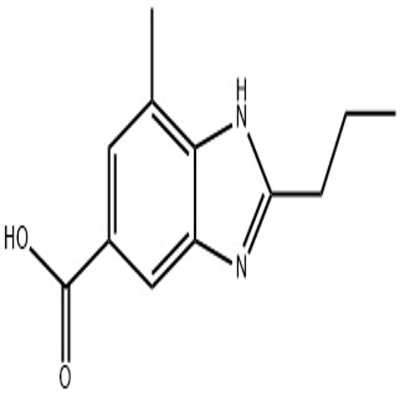-
Categories
-
Pharmaceutical Intermediates
-
Active Pharmaceutical Ingredients
-
Food Additives
- Industrial Coatings
- Agrochemicals
- Dyes and Pigments
- Surfactant
- Flavors and Fragrances
- Chemical Reagents
- Catalyst and Auxiliary
- Natural Products
- Inorganic Chemistry
-
Organic Chemistry
-
Biochemical Engineering
- Analytical Chemistry
-
Cosmetic Ingredient
- Water Treatment Chemical
-
Pharmaceutical Intermediates
Promotion
ECHEMI Mall
Wholesale
Weekly Price
Exhibition
News
-
Trade Service
Methyl 6-chloropyridazine-3-carboxylate, also known as MCP-B, is an important intermediate in the production of several pharmaceutical drugs, agrochemicals, and other chemical products.
The synthesis of MCP-B can be achieved through several different routes, but the most commonly used methods are the synthetic routes.
The first synthetic route to MCP-B was reported in the year 2000 by W.
Zhang and his colleagues.
This route involved the reaction of 4-chloro-6-aminopyrimidine with methyl tosylate in the presence of a base such as sodium hydroxide.
The reaction produced the tosylate salt of the desired carboxylate, which was then hydrolyzed using hydrochloric acid to yield the free acid.
A more efficient synthetic route to MCP-B was reported in 2002 by T.
Suzuki and his team.
This route involved the reaction of 4-chloro-6-aminopyrimidine with methyl iodide in the presence of a solvent such as dimethylformamide and a base such as sodium carbonate.
The reaction produced the methyl ester, which was then converted to the desired carboxylate by treating with a strong acid such as hydrochloric acid.
A further improved synthetic route to MCP-B was reported in 2010 by J.
Wang and his colleagues.
This route involved the reaction of 4-chloro-6-aminopyrimidine with methyl thioglycolate in the presence of a solvent such as dichloromethane and a base such as triethylamine.
The reaction produced the thioglycolate ester, which was then converted to the desired carboxylate by treating with a strong acid such as hydrochloric acid.
This route offered several advantages over the earlier methods, including a higher yield, shorter reaction time, and reduced waste generation.
In addition to these synthetic routes, other methods have also been reported in the literature for the synthesis of MCP-B.
These include the use of microwave irradiation, ultrasound, and other novel reaction conditions, each of which has its own advantages and limitations.
The choice of synthetic route for MCP-B depends on various factors, including the desired yield, the cost of the reagents, the reaction time, and the availability of the necessary equipment.
The most suitable route for a given application can be determined through a detailed evaluation of the available options and a careful consideration of the specific requirements.
Overall, the synthetic routes to MCP-B have been well developed and refined over the years, and the availability of this important intermediate has significantly facilitated the production of many pharmaceutical and agrochemical products.
As the demand for these products continues to grow, it is likely that new and more efficient methods for the synthesis of MCP-B will be developed in the future.





![benzyl N-{2-[4-(4,4,5,5-tetramethyl-1,3,2-dioxaborolan-2-yl)phenyl]ethyl}carbamate](https://file.echemi.com/fileManage/upload/goodpicture/20210823/m20210823171124543.jpg)

